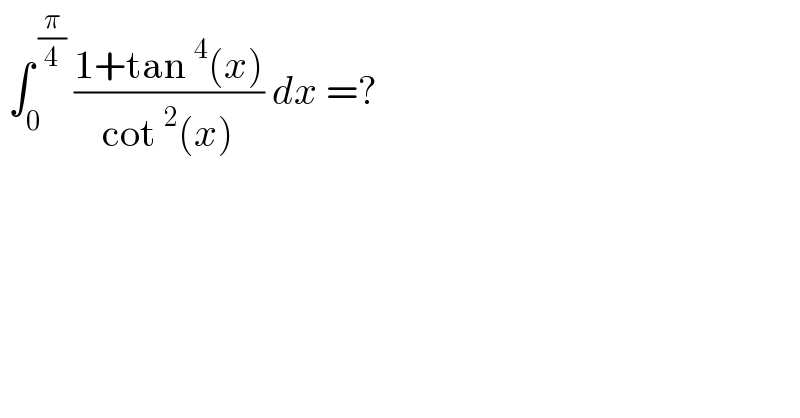
Question and Answers Forum
Question Number 161537 by cortano last updated on 19/Dec/21

Answered by Ar Brandon last updated on 19/Dec/21
![=∫_0 ^(π/4) (tan^2 x+tan^6 x)dx =∫_0 ^(π/4) (sec^2 x−1)dx+∫_0 ^(π/4) (tan^4 x)(sec^2 x−1)dx =[tanx−x]_0 ^(π/4) +[((tan^5 x)/5)]_0 ^(π/4) −∫_0 ^(π/4) (tan^2 x)(sec^2 x−1)dx =1−(π/4)+(1/5)−[((tan^3 x)/3)]_0 ^(π/4) +∫_0 ^(π/4) (sec^2 x−1)dx =(6/5)−(π/4)−(1/3)+[tanx−x]_0 ^(π/4) =((13)/(15))−(π/4)+(1−(π/4)) =((28)/(15))−(π/2)](Q161549.png)
Commented by Ar Brandon last updated on 19/Dec/21

Commented by peter frank last updated on 20/Dec/21

Answered by cortano last updated on 19/Dec/21

Commented by saboorhalimi last updated on 19/Dec/21

Commented by cortano last updated on 20/Dec/21

